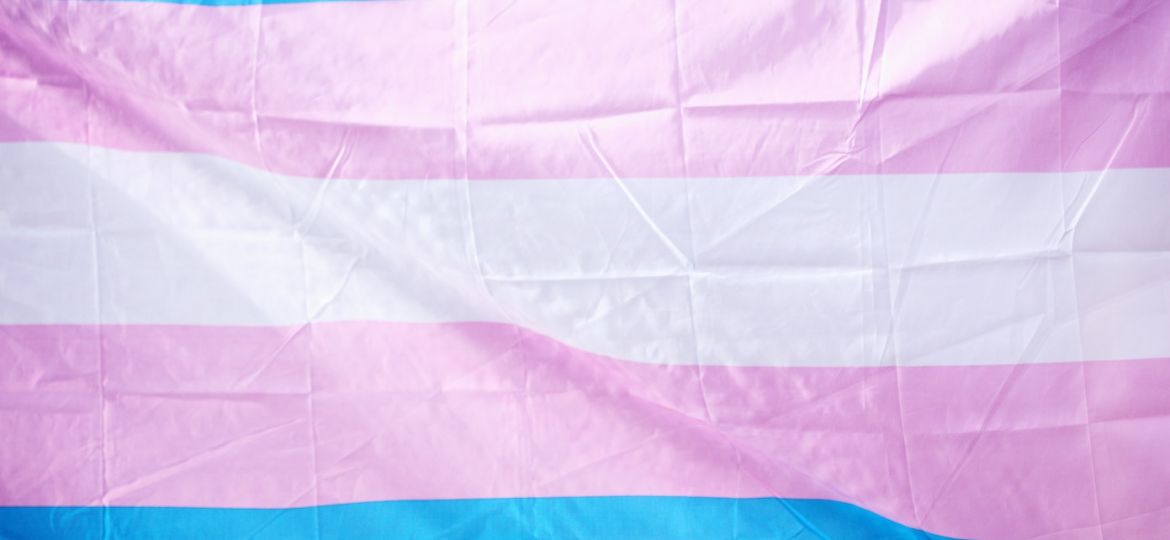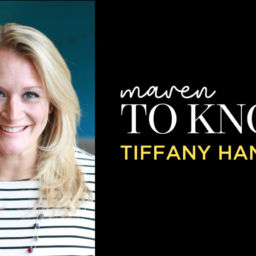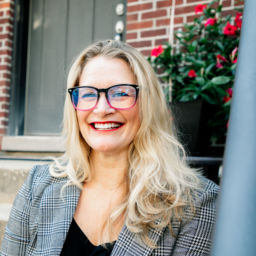
We want Indy to be a safe, welcoming place for all women, especially some of the most vulnerable among us: trans women. Across the U.S., trans people face high risks of violence, and those numbers rise steadily for black trans women. But even putting aside violence, everyday discrimination, including behavior that seems accidental, makes our world a little bit less livable for the trans women among us.
 Michelle Jarrell came out to the local trans community in 2007, but didn’t do so in the workplace until 2015. Her journey was long and difficult, and measures like Indiana’s Religious Freedom Restoration Act or RFRA and bathroom laws, as well as general attitudes in society, make her daily life more difficult.
Michelle Jarrell came out to the local trans community in 2007, but didn’t do so in the workplace until 2015. Her journey was long and difficult, and measures like Indiana’s Religious Freedom Restoration Act or RFRA and bathroom laws, as well as general attitudes in society, make her daily life more difficult.
“Most of the transphobia I encounter on a daily basis is non-verbal, mostly in the form of staring, pointing, laughing, acting unprofessionally when I enter or exit a room, and so on. I have also personally experienced such things as threatening and mocking speech, daily mis-gendering, and being excluded from activities that I would have been invited to in the past,” she said.
And considering that the Supreme Court will decide soon if a trans woman’s right to hold a job is even protected (and whether women of all gender presentations who don’t conform to their bosses’ ideas about femininity can go to work), I feel it’s time we all put in the effort to make our city a better place for our trans sisters. Our beloved Midwest isn’t always the most open place to change, so perhaps we need to help it along. Here are seven ways to make Indy a more trans-friendly, woman-friendly place.
“Most of the transphobia I encounter on a daily basis is non-verbal, mostly in the form of staring, pointing, laughing, acting unprofessionally when I enter or exit a room.”
CALL PEOPLE BY THEIR CHOSEN NAMES
Naming is power. When your parents named you, they made certain choices about your identity; if you chose a different name as an adult, you did, too. Our formation of our personal identities, our capacity for self-determination, begins with our names, and extends to every facet of our lives. Suppose your name is Carrie. Your co-worker insists on calling you Cammie. You correct him; he insists. He says you just look more like a Cammie to him. That doesn’t seem fair or appropriate, does it? The same thinking can be applied to making sure you call a trans woman (or man) by the name they would like to go by in the world.
SHARE YOUR PRONOUNS
Like names, pronouns are vital identifiers. Michelle says that in moments of misgendering, she experiences “shame, self-consciousness, extreme sadness and anger, and a sense of personal failure.” When a woman comes out as trans, she is not necessarily changing who she is; likely, she has been a woman in her brain and heart for a long time. She’s only changing what you see. Likewise, many people don’t wish to identify with the restrictive aspects of gender our society has deemed previously acceptable. Respecting a person’s wishes with regard to pronoun identifiers is a simple way to be a welcoming human. The adjustment may not always come naturally, but it could mean the world to another person. Even professional and academic style guides have recently changed some of their guidelines around pronoun use, like the use of the singular “they” for someone whose gender identification is not known or whose preferred pronoun is indeed “they”.
You can signal your support and respect visually by wearing a pin that denotes your pronouns or adding a label to your social media handles or email signature that denotes what you prefer to be called, like “she/her/”. Michelle tells us that when she encounters cisgendered people announcing their pronouns, “it gives me some comfort, as it’s a ‘tell’ that the person I’m communicating with understands the importance of self identification.” (And for those of you who are less familiar, a person who is cisgender is one whose sense of personal identity corresponds to their birth sex.) It’s a small step we can take to make others feel safe. Check out these gorgeous pronoun pins at Crimson Tate.
RECONSIDER THE GENDER REVEAL
There are a lot of opinions about the trend of gender reveals which you may not have ever considered before. But gender reveal events can be perceived as sexist and transphobic. In truth, “gender” is not linked in any real way to chromosomes or sex organs; gender is a social construct, defined as our chosen expression of femininity or masculinity. Your sex and your gender are not actually the same thing, scientifically speaking. This could certainly be a complicated topic for many, but perhaps sharing an article like this one—or those linked to throughout this piece—offers a way to start the conversation, should you wish to broach the subject.
SUPPORT LOCAL ORGANIZATIONS THAT SUPPORT TRANS WOMEN
IU Health Hospital provides excellent care for trans people, and Riley Hospital’s Gender Health Program offers services for children who are beginning to question their assigned gender. While discriminating against trans patients is illegal under the Affordable Care Act, a long history of exclusion and alienation has kept many trans people away from healthcare facilities, and Indy’s affirming care is still relatively rare. Indiana Youth Group supports LGBTQ young people in our community, and Trinity Haven will begin providing shelter for homeless LGBTQ youth in 2020 because rejection by parents and eviction from their family homes is devastatingly common among trans kids. These organizations are vital to the city, and are great outlets to target with year-end giving. Gendernexus and Indiana Transgender Network also support trans women in our city and state.
SUPPORT BUSINESSES THAT SUPPORT LGBTQ PEOPLE—AND TELL THEM WHY
Although the Open for Service website is no longer up and the group hasn’t tweeted in a year, many Indy businesses still proudly wear the organization’s This Business Serves Everyone sticker, a clear signifier that the company not only supports LGBTQ people, but that it opposed Indiana’s restrictive RFRA law in 2015. Looking for a sticker is an easy way to support business allies. Look, too, for gender-neutral restrooms in the places you shop and eat. Bathroom-use restrictions are one of the front-line tools of transphobia, despite the scare tactics being empty, since no incidents have been recorded of trans women harming women or children in public restrooms.
You can also choose to buy clothes at retailers that carry a wide range of sizes and fits, since transitioning women are going through dramatic body changes that affect their ability to wear the clothes that signify their true identities. The best local choices are chains like Torrid and Lane Bryant, but we can all encourage our favorite boutiques to diversify their size offerings. And you can always signify your support of companies that sponsor Indy Pride.
EDUCATE YOURSELF AND YOUR EMPLOYER
Trans women, including your trans coworkers, are engaged in self-advocacy all day, every day. Instead of asking them to bear the burden of teaching you how to support them, read up at the Indiana Transgender Network and the National Center for Transgender Equality. Then begin your own advocacy, especially in the workplace, where your trans coworkers may fear for their livelihoods. You may be better positioned than they are to educate your employers about the issues trans workers face and their need for support and protection.
STAND UP TO “HARMLESS” JOKES AND COMMENTS
You can never know if someone within earshot of an acquaintance or colleague’s comment or joke about genitalia, gender, or sex could be questioning their own identity. But even if that’s not the case, helping others to understand the damage their words might cause in the world can create a positive ripple effect. Everyone makes mistakes, and even accidental transphobia happens. Until we’re all willing to take risks to stand up for equality, people will keep getting hurt.
Making the world a kinder, more welcoming place for all women isn’t the path of least resistance. It isn’t about protecting those in power, including ourselves, if we are not trans women. It’s about opening the world, and our city, to ways of being alive that we may not find familiar or understand, but that are part of our human sisterhood all the same.
Victoria Barrett is a freelance writer in Indianapolis—and an ally.












